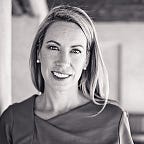What is your why?
This morning, I watched a YouTube video created by my friend and coach, Octevia Torien, who challenged leaders to reflect on the question, “What is your why?”
This felt like a particularly prescient question to consider this morning given that I had just signed our office lease for a second year of business, defeating the odds of closing within a year. But simply surviving is hardly a calling, and it certainly doesn’t answer the question of why we are doing what we are doing.
And let me be clear, it’s been challenging. Having a pretty solid “why” has helped me through difficult days by giving me the courage to give candid answers to friends and former colleagues who have asked about the business: It’s hard. I’m tired. Ask me in a year. It’s helped our company walk away from contracts and clients that were not the right fit and articulate our offerings to those who were.
In March of 2019, I was asked to speak about entrepreneurship to a room full of IB students. Less than two months into our journey, I was not equipped to provide an inspirational talk on the joys of entrepreneurship. Instead, I gave a very real talk.
I’ve left a role as a Vice President at an international company. I passed on a job offer from a prestigious consulting firm, and I’m not sure if my company will be in operation in a year. I may have made a mistake that will have negative repercussions for my family. I’ve switched from 20 dirham lattes at Starbucks to 1 dirham Karak chai from the petrol station. I may be in front of you in a year’s time saying this was a pretty bad decision.
Although the “why” of any given choice can be complex, my team and I did two things that helped us articulate our “why” before launching. First, we worked through the values exercises in Resonant Leadership by Richard Boyatzis and Annie McKee. Second, we completed personal and team ikegis. We refer to these often. Bottom line, we created Mirai to contribute positively to the world through innovation in learning and leadership–and to live according to our values.
Having a “why” feels more solid to me than having “found my passion.” Passions ebb and flow. We may be passionate about different things at different times in our lives. Knowing one’s why promotes growth, while “finding a passion” may, in fact, be limiting. I can’t say that I’m passionate about everything I do, but I do have reasons for it.
Is our team’s “why” too broad? Maybe, but I wouldn’t have it any other way. I can’t say with certainty that we will still be in operation in another year’s time, but we have reason to believe that we stand a chance. I certainly hope that I find myself signing our lease for the third time a year from today. If Year 2 is anything like Year 1, I know I will be amazed by all I’ve learned and the kindness and support people have shown. More than anything, I will feel grateful to wake up every morning with a resounding ‘why’ in my head and heart.
